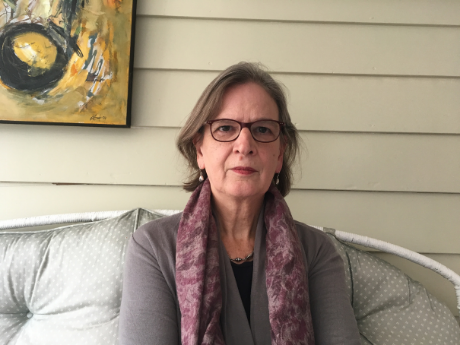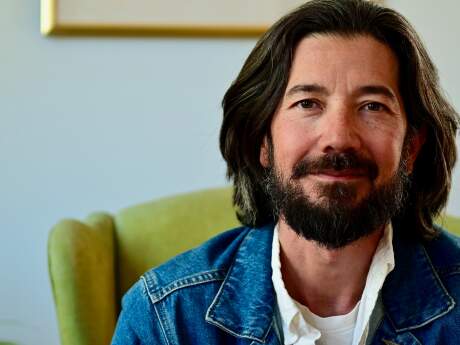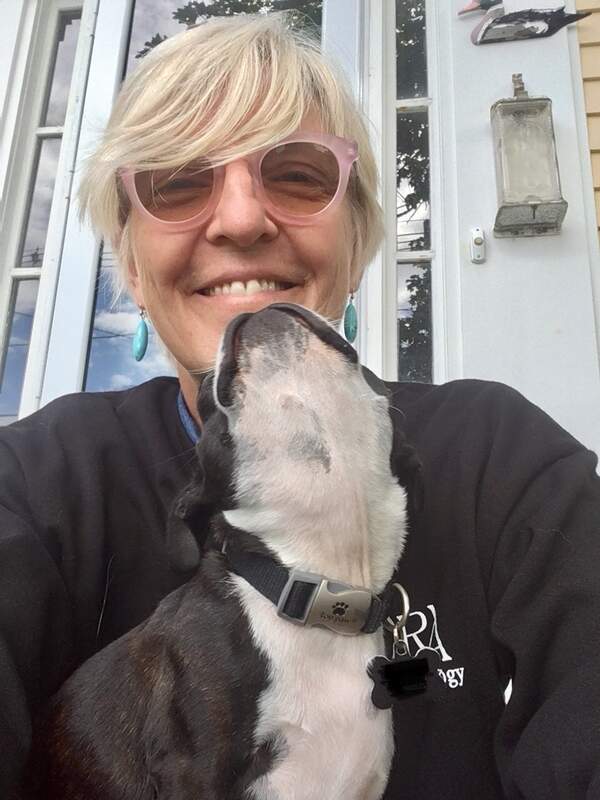Stopping By
Stopping by with Fiona McCrae

During this extraordinary moment in time, we asked writers, musicians, curators, and innovators to reflect on influence, memory, language, shared spaces, and the power of poetry to bring us together.
Fiona McCrae has been publisher of Graywolf Press since 1994. During her tenure, the Press has expanded its lists of poetry, literary nonfiction and criticism, fiction, and works in translation. Recent authors who have enjoyed notable successes include Anna Burns, Eula Biss, Tsitsi Dangarembga, Per Petterson, Claudia Rankine, Natalie Diaz, Percival Everett, and Tracy K. Smith. McCrae currently serves on the boards of the Anderson Center and Fence, and is Vice-Chair of the Board of the National Book Foundation. McCrae received the Golden Colophon Award for Leadership from the Community of Literary Magazines and Presses in 2014, and in 2017 she and poetry editor Jeff Shotts jointly received the Editor’s Award from Poets & Writers.
What is the last thing that moved you?
Am I allowed to choose a book that Graywolf published (although I was not the editor—that honor goes to Jeff Shotts)? If so, I have to say that Diane Seuss’s Frank: Sonnets really thrilled and captivated me. She takes so many risks in terms of both content and form, as she moves through the sorrows and joys of her surprising life in a series of sonnets. Inside that constraint and discipline, she achieves a breathtaking sense of variety and spontaneity. I wish I had space to tell you, too, about the exquisite photographs of Leslie Jean Bart, the irresistible Netflix series, Shtisel, and the enormous, prescient power of Ralph Ellison’s Invisible Man, which I listened to in a stunning audio-book recording.
What is a book that changed or greatly influenced your life?
Studying King Lear in my last year of high school got me to look behind the narrative and story line in a piece of writing to the wonders of what the artist themselves were up to, and to really see how language was behaving on the page. I never recovered. I switched from wanting to study psychology at university to English literature, and that led me to the job I have now.
What is your first memory of poetry?
As I child, I remember being quite stirred by my father going around the house reciting "Jabberwocky” with great fanfare. As a young teenager, I studied the British World War I poets, who really moved me. I think I intuitively knew that these poets were the ones who were speaking the hard truths about the war.
How has this last year changed you, and what is something that you experienced or learned that you’ll take with you into a post-pandemic world?
Being outside of our usual routines and really witnessing up close (George Floyd was murdered in our city) how pervasive racial injustice is has impressed on me the need to center these issues in everything we are doing. This is challenging and ongoing work that is really gathering fresh momentum these days. It’s about more than welcoming people outside our dominant white culture into the house; it’s about rebuilding the house with their leadership.
Who or what is your greatest creative influence?
Shakespeare has to take first place as my greatest influence, and not just King Lear, which I already mentioned. It’s hard for me not to think of the lessons learned from his tremendous insights into human nature almost any day of the week. During the Trump administration, I longed for a Portia to enter stage left and take him down with his own logic! In terms of my life as an editor, Emily Dickinson’s poem, “Tell all the truth but tell it slant” has been something of a mantra. If the writing is not slanted in some way, I tend not to be interested.
If you were to choose one poem or text to inscribe in a public place right now, what would that be? And where would you place it?
Again, I would use a Graywolf text: “because white men can’t police their imagination black people are dying” from Citizen: An American Lyric by Claudia Rankine. And I can’t think of a public venue where these words would not be powerful.
What do you see as the role of art in public life at this moment in time?
I think the role of art continues to be to deliver the truths, stories, and ideas of the times to current and future generations. At Graywolf, we have always been interested in the under-represented genres (poetry, short stories, essays, translations) and in authors who have been historically neglected. This work is more valuable than ever during this moment of national reckoning.
What do you want people to take away from your work?
I recently heard Kazuo Ishiguro in a 92nd Street Y interview talk about his wish for his fiction to get inside people’s minds and stay there, perhaps even as a feeling or an impression. I think that is an entirely noble wish, one we perhaps all share on some level. I hope that over the years, books that we have published at Graywolf have played a role in shaping our national dialogue and culture.
Are you working on anything right now that you can tell us about?
I can’t wait to see On Freedom: Four Songs of Care and Constraint by Maggie Nelson (and edited by Ethan Nosowsky) spark some timely conversations when it comes out. I am also proud to report that Percival Everett is following his Pulitzer-shortlisted Telephone, with a scorcher of a novel, The Trees. Both books publish in September. Further out, I am working on a ferociously slanted take on climate change in the Amazon Forest by Eliane Brum. She has made a home there, and the book performs a profound act of witness and call to global action.


